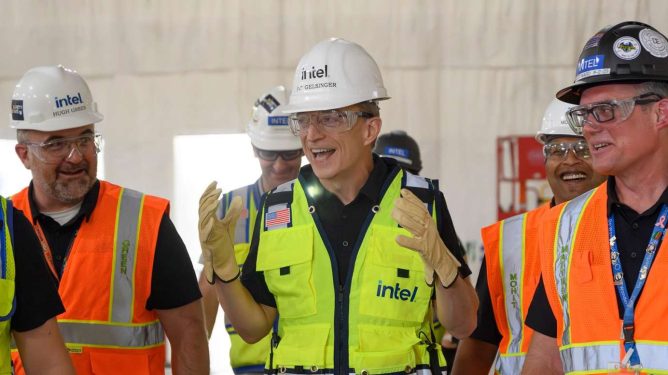Super Weird is the Best Way to Describe This Startup’s Pivot
In this episode of Equity, our hosts Kirsten Korosec, Devin Coldewey, and Rebecca Bellan dive into several weird things and one cool thing. They start with something that may seem nice, but is actually quite unusual – a band founded by Cohere co-founder Nick Frosst.
The Good Weird: A Helmet for Hair Loss Prevention
The discussion begins with a helmet that squeezes the head, but not just for any reason. This helmet, created by Luminate, prevents hair loss from chemotherapy. Devin covers the company’s latest fundraise and news, and everyone is pleased that money is going to a startup that may be helping people feel better about themselves during a difficult time.
Improving At-Home Care
Luminate is hoping to improve at-home care as well. This is a significant pivot for the company, which has been focused on developing technology to help people manage their medical conditions from home. By addressing hair loss, Luminate is taking a step into a new market and demonstrating its commitment to improving patient outcomes.
The Weird Phenomenon of Flink
Next, Kirsten explains the weird phenomenon of Flink, the ‘quick commerce’ startup that recently raised $115 million after rumors of it being on the block for about $106 million. This turnaround is quite unexpected, but as the team discusses, investors may see the possibility that the ‘tumultuous time’ for this sector is ending and Flink may have a good grip on the German market.
The Weirdest of All: TuSimple’s Pivot
The weirdness begins in earnest when Rebecca reports from the ‘Principled Business Summit,’ aimed at ‘reclaiming capitalism.’ She is getting mixed messages from the crowd and the content, which seems to combine enthusiasm for doing the right thing with some fringe tendencies. This seems like a contradictory message, but it may be a reflection of the changing landscape of business and ethics.
TuSimple’s Unexpected Change
But the weirdest of all is TuSimple’s pivot to AI-generated animation and video games. While there is some overlap between simulation and animation/gaming, this change is unexpected for a company focused on autonomous trucking. This new division is working on an adaptation of ‘The Three-Body Problem,’ which may seem unrelated to their original mission.
A Conflict in Focus
Apparently, the new division’s focus has caused conflict among shareholders, who were expecting investment in trucks, not animation and video games. The company had planned to spend $450 million on trucks, but it seems this goal is no longer a priority. This is a significant change of direction for TuSimple, and it raises questions about the company’s future.
Equity: TechCrunch’s Flagship Podcast
Equity is produced by Theresa Loconsolo and posts every Wednesday and Friday. You can subscribe to our podcast on Apple Podcasts, Overcast, Spotify, or all the casts. We also have an X account and a Threads account, where you can follow us at @EquityPod.
Full Episode Transcript Available
If you prefer reading over listening, we have a full archive of episodes available on Simplecast. You can check out our latest episode transcript by visiting this link: https://www.simplecast.com/episodes/equity
About the Hosts
- Kirsten Korosec is a reporter and editor who has covered the future of transportation from EVs and autonomous vehicles to urban air mobility and in-car tech for more than a decade. She is currently the transportation editor at TechCrunch and co-host of TechCrunch’s Equity podcast.
- Devin Coldewey is a Seattle-based writer and photographer. He first wrote for TechCrunch in 2007, and his personal website is coldewey.cc.
- Rebecca Bellan covers transportation for TechCrunch. She’s interested in all things micromobility, EVs, AI, and defense.
Latest Equity Episodes
Here are some of our latest episodes:
- 2024: Founder mode, AI, and the ‘Rise of the Broligarchs’: This episode discusses the current state of startups, with a focus on founder mode, AI, and the rise of new companies.
- Are AI companies just defense tech now?: In this episode, we explore whether AI companies are becoming more focused on defense technology than other areas.
- Building physical tech is back in fashion thanks to AI, robotics, and defense: This episode looks at how AI, robotics, and defense are driving the resurgence of physical tech startups.
Conclusion
In conclusion, this episode of Equity highlights several weird and unexpected changes in the startup world. From a helmet for hair loss prevention to TuSimple’s pivot to animation and video games, these stories show that even established companies can change direction quickly.






